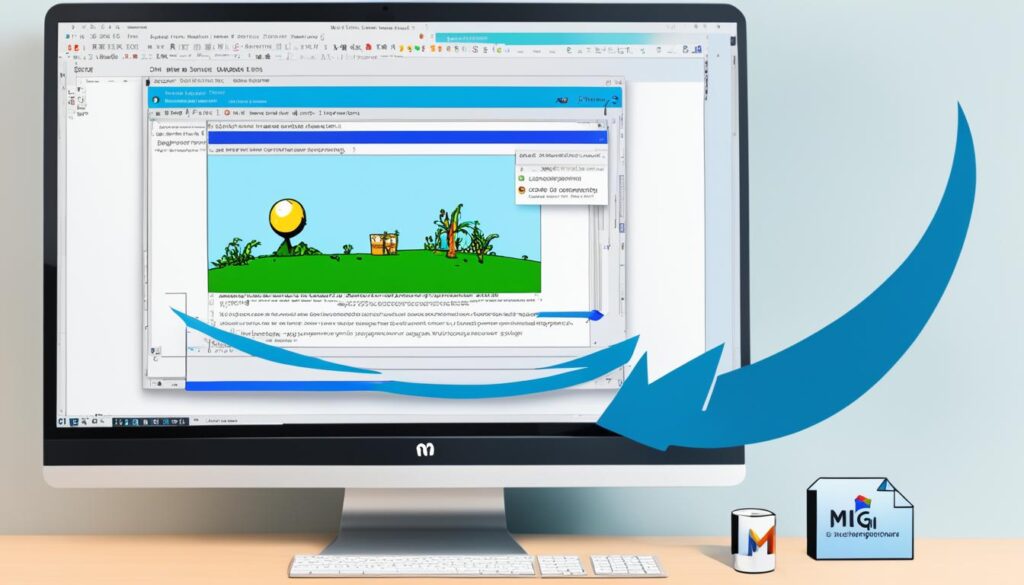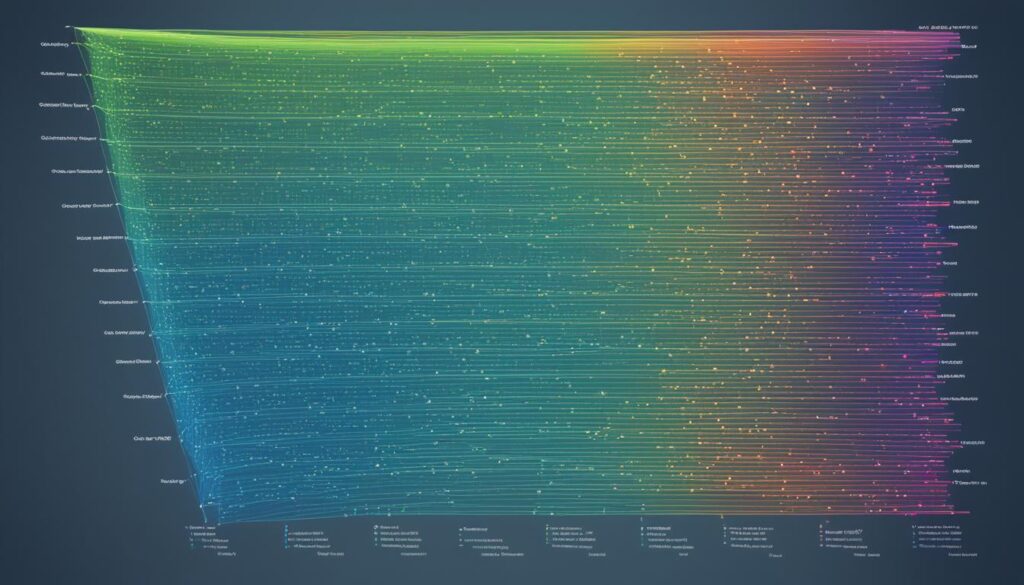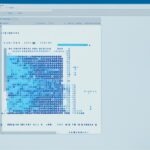Have you ever seen developers write code that works perfectly on all platforms? This guide is about the MinGW C Compiler, a key tool for efficient coding and making apps work on different platforms. We aim to teach you how to use MinGW and the GNU Compiler Collection (GCC) to improve your coding skills and make your code run better.
Let’s explore why the MinGW C Compiler is important for making fast applications. We’ll share tips to help you become a better developer.
Introduction to the MinGW C Compiler
The MinGW C Compiler is a special tool for Windows apps, built on the GNU Compiler Collection (GCC). It’s made for Windows programmers, offering flexibility and efficiency. This open source compiler helps developers work better with the Windows API. It’s key for C and C++ programming on Windows.
Programmers can easily compile their apps with the MinGW C Compiler, using powerful GCC features. Thanks to its open-source nature, the community helps improve and support it. Our experience shows it’s a dependable and efficient choice for making top-notch Windows apps.
What is the GNU Compiler Collection (GCC)?

The GNU Compiler Collection, or GCC, is a key tool for compiling different programming languages. It focuses mainly on C and C++. GCC is vital for MinGW and helps us work more efficiently in this environment.
GCC has features that make our applications run faster. Thanks to updates from a community of developers, it stays current and strong. It can create apps that work on many operating systems, which is very useful today.
We will look into what makes GCC work. By understanding its parts and how they fit with MinGW, we get a better grasp of the compiler’s trustworthiness and what it can do.
| Feature | Description |
|---|---|
| Optimization | Enhances performance for compiled applications. |
| Cross-Platform | Supports development across various operating systems. |
| Community Support | Continuous updates and improvements driven by a dedicated community. |
| Multi-language Support | Compiles several programming languages beyond C. |
Benefits of Using the MinGW C Compiler
Using the MinGW C Compiler brings many benefits to our programming work. It’s open source, which means we can work together and share knowledge. This leads to a compiler that stays up-to-date and meets our needs.
Open Source Advantage
As an open source compiler, MinGW builds trust and transparency with its users. We can see and change the source code, making it perfect for our projects. The community’s help brings new ideas and skills from all over the world.
Cross-Platform Development
MinGW is great for making apps that work on different systems. We can make Windows apps that also run on Linux and macOS. This saves time and lets our apps reach more people, working well on many platforms.
Setting Up the MinGW C Compiler

Setting up the MinGW C Compiler on Windows is easy with a few key steps. This guide will help us install MinGW correctly and get our system ready for coding.
Installation on Windows
First, we download the MinGW setup file from its official website. Here’s what to do next:
- Visit the MinGW official website and find the download link.
- Run the installer and pick the packages we need. Make sure to include the GCC core and MinGW Developer Toolkit.
- Follow the installer’s instructions to finish the setup. Make sure to choose the package manager option.
After installing MinGW, we check if it’s working by opening the command prompt. Type gcc –version to see if the Windows C Compiler is set up right.
Configuring Environment Variables
Next, we need to set up environment variables for MinGW. This makes sure our system knows how to use MinGW commands everywhere. Here’s how:
- Right-click on This PC or My Computer and select Properties.
- Click on Advanced system settings and go to the Environment Variables button.
- In the system variables section, find the Path variable.
- Add the MinGW bin directory to the Path, usually in C:\MinGW\bin.
- Click OK to save the changes.
By doing these steps, we make sure our development environment is ready. We can now use the Windows C Compiler efficiently. With everything set up, we’re ready to start coding.
| Step | Description | Outcome |
|---|---|---|
| 1 | Download MinGW | Setup file acquired |
| 2 | Install MinGW components | Essential tools available |
| 3 | Verify installation via cmd | GCC version displayed |
| 4 | Set up environment variables | Commands accessible globally |
Understanding MinGW’s Core Components
The MinGW environment is key for making C programming easier on Windows. It has many important parts that work together well. Knowing about these parts helps us code better and run C programs smoothly.
The GCC port is a main part of MinGW. It turns our C code into files we can run. Without it, making and running apps would be much harder.
MSYS (Minimal SYStem) is also crucial. It gives us tools from GNU that work with MinGW. This lets us use familiar commands and scripts, making our work easier and more efficient.
Libraries are another important part. They let us use the Windows API directly. This means we can make apps that use Windows features well. Our C code gets better with these libraries, adding more features.
In short, MinGW’s parts work together to make a great place for C programming. Using these tools helps us write better code and make apps that users like.
Writing Efficient C Code with MinGW

To get the most out of the MinGW C Compiler, making efficient C code is key. It’s vital to know how to optimize code for better performance and less resource use. We’ll look at effective ways to improve our coding to get the best results.
Code Optimization Techniques
Optimizing code means making our algorithms and data structures better. This helps speed up execution and use less memory. Key techniques include:
- Algorithm Efficiency: Choosing the right algorithm can cut down execution time a lot.
- Memory Management: Proper memory handling prevents leaks and cuts down on resource use.
- Compiler Optimization Flags: Using flags like -O2 or -O3 in MinGW can boost optimization, making the code run faster without changing the source.
Common Coding Practices for Performance
Good coding practices help us write efficient and easy-to-maintain C code. Important practices are:
- Reducing function calls in key parts of the code to lower overhead.
- Using inline functions to cut down on the cost of function calls.
- Choosing static variables for data that doesn’t change for better memory use.
- Loop unrolling in tight loops to reduce loop control overhead.
Compiler Flags for Enhanced Performance
Using the right compiler flags can make our code run faster. These flags help optimize how our code is built in the MinGW environment. They let us tailor our build processes for our specific needs. Knowing how to use these flags can make our development faster and more efficient.
Essential Compiler Flags to Know
Learning about key compiler flags can help us make our applications better. Here are some flags you should know:
- -O2: This flag makes our code run faster by applying various optimizations.
- -g: It adds debugging info, which is useful for finding problems during development.
- -Wall: This flag turns on warnings about coding issues, helping us keep our code clean.
- -std=c11: It makes sure our code follows the C11 standard, making it more portable and functional.
- -DDEBUG: This flag turns on debugging features, which is very useful during development.
Customizing Build Processes
It’s important to customize our build processes for our projects. By adjusting compiler flags, we can improve MinGW performance. This depends on things like the target architecture and how much optimization we need. Here’s a quick guide on how to change our build settings:
- First, figure out what our project needs to achieve.
- Then, pick the right compiler flags for those goals.
- Add the flags to the build command or change the Makefile.
- Test the app to see how different settings affect it.
- Keep refining the flags until we get the best performance.
Debugging and Testing with MinGW

Debugging is key to making our code better and more reliable. We’ll look at the GNU Debugger (GDB), a top tool in MinGW. GDB lets us check variables, move through code, and find problems easily. Learning these skills cuts down the time to fix bugs.
Using GDB for Debugging
GDB makes debugging with MinGW easier. We can set breakpoints, look at the call stack, and see how variables change. Using GDB helps us find and fix errors quickly. Here are some basic commands:
- run: Start the program being debugged.
- break: Set a breakpoint at a specified line.
- print: Display the value of a variable.
- backtrace: Show the call stack leading to the current point.
Best Practices for Testing Your Code
Testing our code in a methodical way ensures it works well. Here are some top tips:
- Write unit tests to check each part.
- Use automated testing to make it faster.
- Do regression testing after changes to avoid new bugs.
- Use logging to see how the code runs and catch errors.
Integrating MinGW with Build Automation Tools
Making our work more efficient means using MinGW with build automation tools. These tools help manage projects better, make working together easier, and keep projects up to date. We’ll look at some top tools that work well with MinGW.
Popular Automation Tools for C Development
There are many tools for automating builds, each with its own strengths:
- Make: A classic tool that automates building by tracking what’s needed, making builds faster.
- CMake: A modern tool that creates build scripts for different systems, ensuring builds work everywhere.
- Bazel: A big project build tool that supports small and large projects, works great with MinGW for C.
Streamlining Your Development Workflow
Using these C development tools makes our work easier. With build automation, our teams can:
- Cut down on manual building and mistakes.
- Work better together by using the same build settings.
- Make deploying changes easier and more reliable.
MinGW vs. Other Compilers
When we look at C programming, we often compare MinGW with other compilers like Microsoft Visual Studio and Clang. Each has its own strengths for different software development needs.
MinGW is known for being simple and lightweight. It’s great for developers who want quick compilation in Windows. It works well with GCC, making it easy for both new and experienced users.
Microsoft Visual Studio offers a lot of tools for various development tasks. It has a user-friendly interface, great debugging tools, and helps with managing projects. But, it can be more complex and harder to learn for beginners.
Clang is known for its speed and modern design. It gives clear error messages, making coding easier. In comparing MinGW with other compilers, Clang is often praised for following the latest C standards and optimizing code.
To show these differences, here’s a table:
| Feature | MinGW | Microsoft Visual Studio | Clang |
|---|---|---|---|
| Performance | Fast compilation | Resource-intensive | High optimization |
| Usability | Simplistic | User-friendly interface | Clear error messages |
| Community Support | Active open-source community | Commercial support available | Strong development community |
| Cross-Platform | Windows-centric | Windows focused | Cross-platform capabilities |
Looking at these points helps us see where MinGW fits in the world of C programming. Knowing the pros and cons of each compiler helps us choose the right one for our projects.
Real-World Applications of MinGW
MinGW plays a key role in many areas. It lets developers make apps that work on different platforms. This makes it very useful in today’s tech world. Many industries use MinGW for its efficiency and flexibility. This has led to great success stories in making apps for different platforms.
Case Studies in Cross-Platform Development
Many companies have used the MinGW compiler in their work. Through case studies, we see its benefits:
- Software Firm A: This company used MinGW to make a desktop app that works on many systems. This cut down their time to market. It also helped them reach more people.
- Gaming Company B: With MinGW, this game maker made a game for Windows and Linux users. MinGW let them use their code on more platforms, reaching more players.
- Educational Institution C: In schools, researchers used MinGW for software that works on all systems. This made sure all students could use it, no matter their computer setup.
These stories show how widely MinGW is used. Using this compiler boosts productivity and encourages new ideas in making apps for different platforms.
Community and Support for MinGW Users
The MinGW community is key for users needing help and more info on the MinGW C Compiler. It lets us share knowledge, solve problems, and learn from each other. Forums are great for talking about everything from simple questions to complex topics.
Documentation is super important for understanding MinGW. It has guides and tutorials that make it easy for beginners to get started. There are also articles and videos from users that add more to what we know.
GitHub repositories and projects let us work together and learn with others. Being part of the MinGW community helps us get better at what we do. It also helps us help other developers. This teamwork makes the MinGW experience better for everyone.
Future of the MinGW C Compiler
The future of MinGW looks promising with ongoing advancements in C compiler development. The community’s involvement is key to these improvements. Updates bring more efficient tools and support for new programming standards.
Developers want more complex features, so MinGW must keep up. This means it will need to evolve to meet these needs.
There’s a big push for cross-platform development. This means making things work on different systems easily. We expect to see better compilation and better system integration.
This will make MinGW more popular among developers looking for strong solutions.
The open-source nature of MinGW keeps the community active in making the compiler better. This leads to more innovation and teamwork. Looking forward, MinGW’s future is bright with active users and ongoing improvements.
| Feature | Current Status | Future Trends |
|---|---|---|
| Community Contributions | Active participation in updates | Increased collaboration and features |
| Cross-Platform Support | Reliable for Windows | Expansion to more operating systems |
| Performance Optimization | Ongoing improvements | Advanced optimization algorithms |
| Integration with Tools | Supported by various IDEs | Smoother integration with build systems |
Conclusion
Our look into the MinGW C Compiler shows its key role in making coding more efficient. It helps us develop faster and improve code performance on different platforms. By diving into its features, we can make our software better, especially in the Windows world.
The community around the MinGW C Compiler gives us great support and resources. These tools are crucial for developers who want to get better at coding efficiently. Using tools for analyzing performance can make our code work better and more reliably.
By using the MinGW C Compiler, we help grow the field of making software that works on many platforms. For more tips on making code run smoother, check out ABAP Debugging and Performance Tuning. This guide shares important tips that can be used in many programming situations.



Leave a Reply